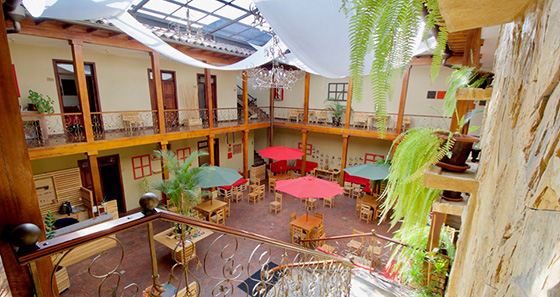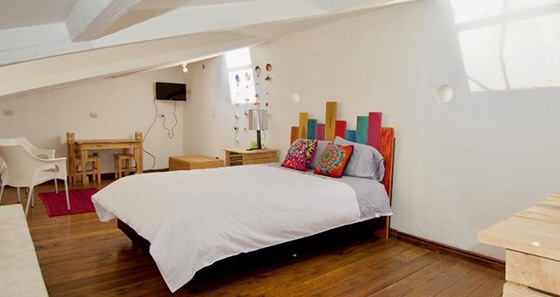Cuenca, Ecuador: Our 2021 detailed guide from how to get there, where to stay, what to do and much much more!
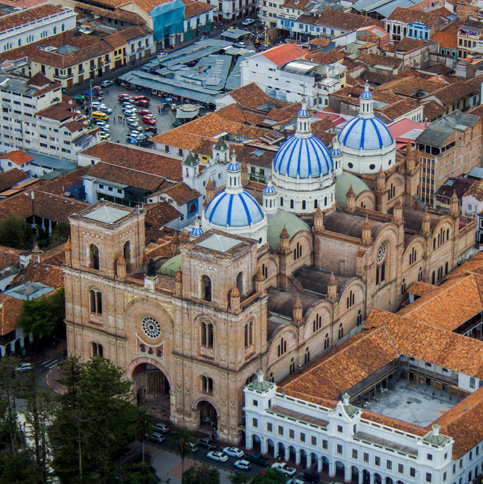
Below, we have created our extensive guide to Cuenca based on our expert local knowledge and experience transporting countless people in Ecuador each year.
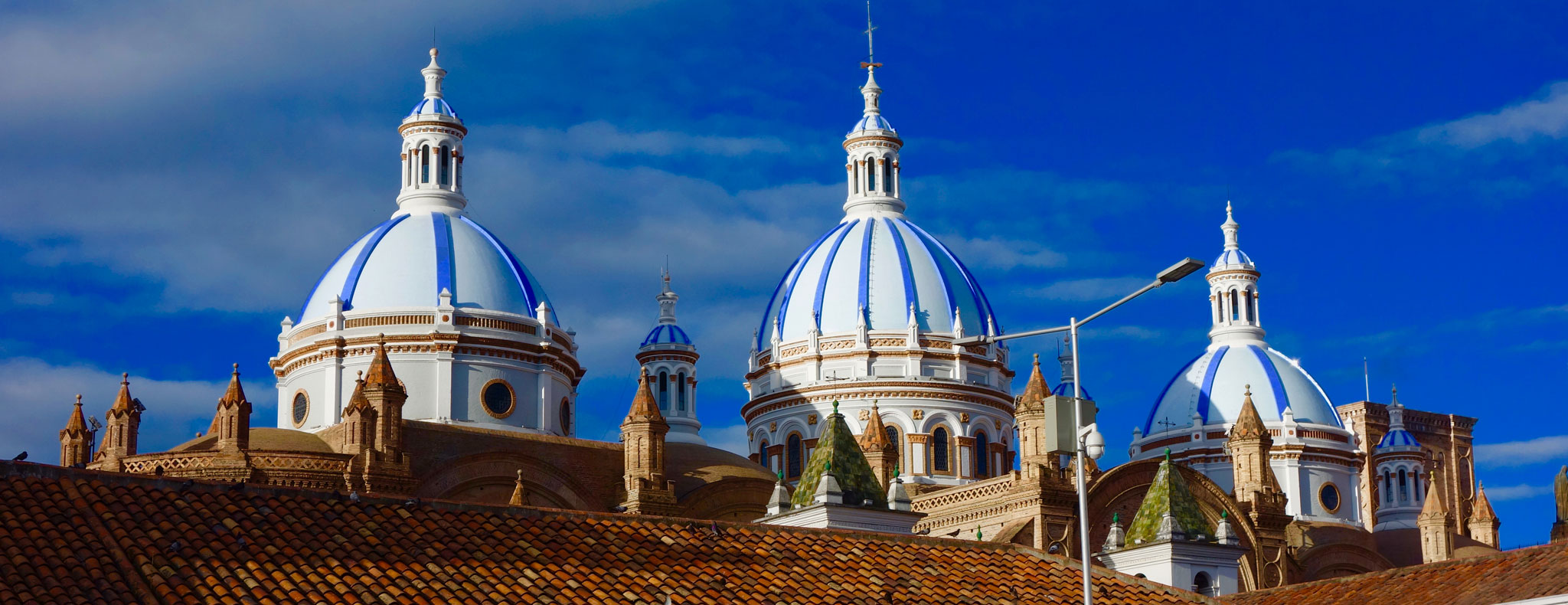
Most visitors to Cuenca will arrive either by air or by bus. Mariscal Lamar International Airport in Cuenca is a small airport and can suffer from closures due to weather, so in order to assure your travel, we recommend traveling by bus.
For those planning to arrive by bus, it’s highly recommended to use Ecuador Hop buses if traveling from points further north or west in Ecuador or from Peru.
Ecuador Hop’s unique hop on hop off style of service allows travelers to see the country’s best hidden gems with a totally flexible itinerary. Learn more about the different passes available here.
Cuenca is crossed by four rivers. Yes! Four! They are the Tomebamba river, Yanuncay river, Tarqui river, and Machangara rivers. All of them join to form the Cuenca river.
This gave the city a unique attraction because its rivers are unpolluted and people can take a walk on their shores to see the sunset, exercise, eat something or have a drink.
The bridges over the rivers also play a part in the tourist scene, offering beautiful views to enjoy and places to go.
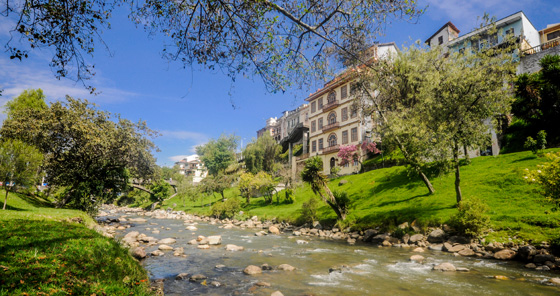
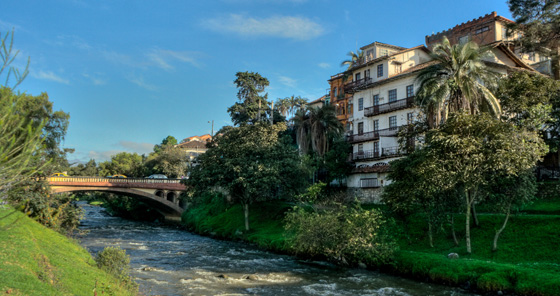
Nearby Cuenca you’ll find the Ingapirca ruins, the best-preserved archaeological complex in all of Ecuador. It is located at 3,160 meters above sea level in the Cordillera Sur mountain range and is a powerful symbol of the magnificent Inca culture in Latin America.
Ingapirca means “Inca’s wall.” Before the arrival of the Spanish, it was used as an essential ceremonial area and is, together with Machu Picchu in Peru, one of the most representative buildings of this civilization.
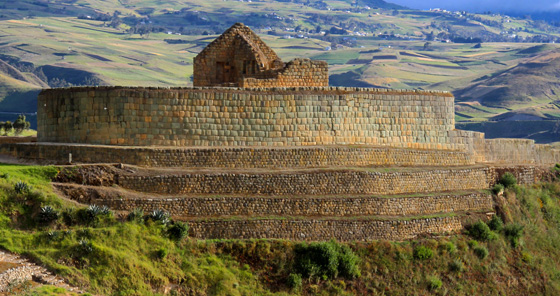
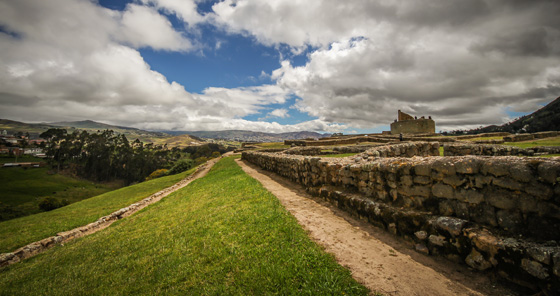
Just 33 km away from Cuenca you’ll find this impressive protected highland area made up of many massive Andean mountains and beautiful lakes.
The park is home to about 1,000 bodies of water, of which 235 are lagoons. Rivers such as the Tomebamba or the Yanuncay that pass through the city of Cuenca, are also born in “El Cajas” and are the sources of the city’s drinking water.
With such a special ecosystem, its flora and fauna are impressive and that’s the reason why it’s a protected area. If you want to go to El Cajas, be sure to bring some clothes for cold weather. In summer the temperatures range between 8°C in the night and 12-18° in the day, while in winter the temperature can drop to -2 ° C with a maximum of 10 ° C.
In this altitude, rains are frequent, especially from October to May.
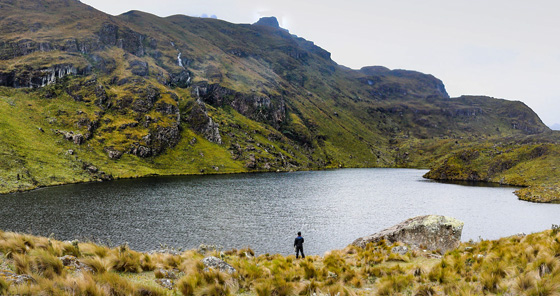
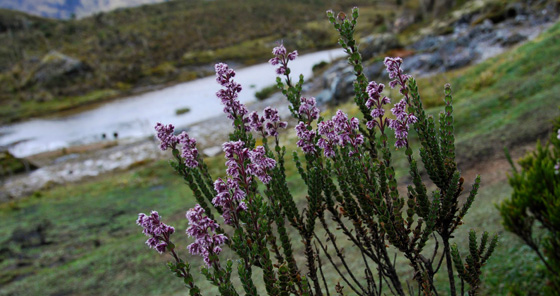
On the riverside of the Tomebamba River is the 3 de Noviembre promenade. A road of more than 800m travels the route of the river, providing a privileged view of the city.
Along the road, you can appreciate more than 100 historic houses as well as a variety of species of flowers and local animals. This is a favorite place in the city to run, walk, and ride bicycles.
Turi’s viewpoint on the south side of the city and La Colina’s viewpoint in the north are great places to visit in Cuenca. This is the best way to see its famous red roof architecture. At night the view is really something special. Don’t forget to bring your camera!
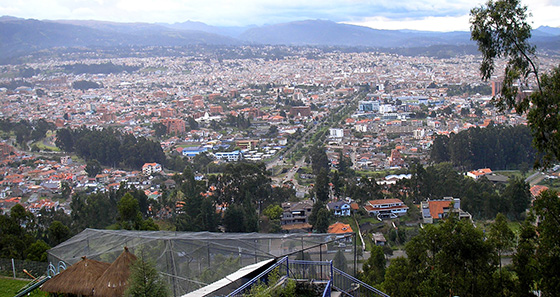
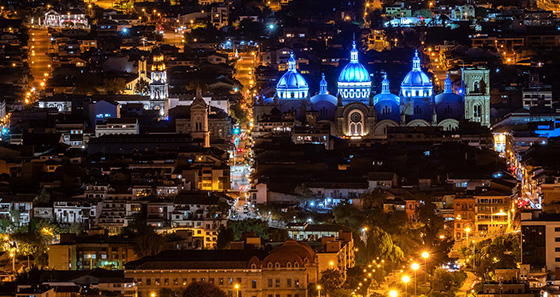
Traditional markets are very popular in Cuenca. They are well-organized, clean, and have a great gastronomic offering. Markets are the ideal places to take the pulse of the cities, and in Cuenca, you could find some unusual ones: 10 de Agosto Market, 9 de Octubre market, El Arenal Market, San Francisco Market, and Flower Market.
One great way to explore Cuenca is to walk through the markets and find some typical ingredients of Ecuadorian gastronomy, drink some fruit juices and enjoy a flagship dish of the markets: “el hornado” (baked pork). If you go to the markets with the intention to buy souvenirs or ingredients, take into consideration that it is normal to bargain.
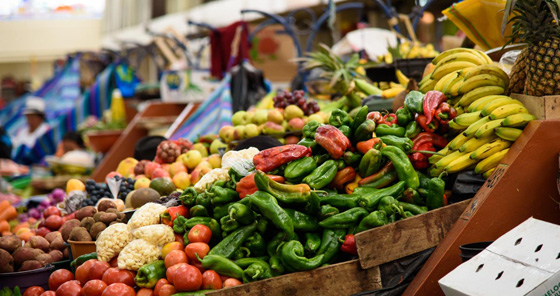
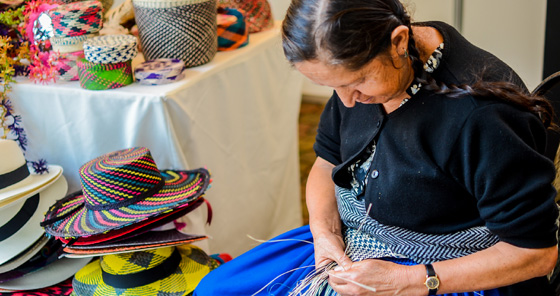
Ecuadorian flowers are some of the principal attractions in the country. The weather works in favor of the vegetation, so its flowers are colorful with world export quality. That’s why the Flower Market of Cuenca appears in all the lists of the best flower markets in the world, side by side with the Marché Aux Fleurs in Paris, for example.
It’s located near the Cathedral of Cuenca in the colonial zone of the city, making for a unique backdrop. It’s not too big, but sellers are installed since the first light in the morning.
The most popular flowers are orchids, lilies, and roses which stand out because of their size (they are huge!) and their variety of colors.
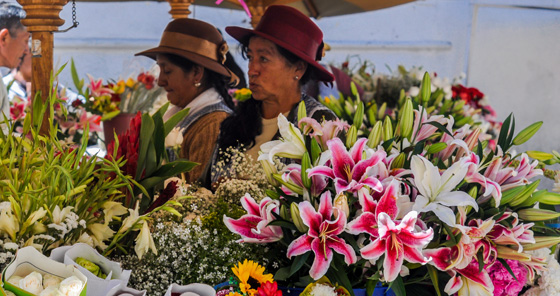
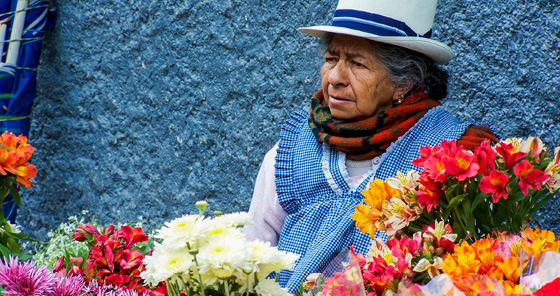
Cuenca has at least a hundred traditional buildings from the colonial era in its city center. In fact, the city’s center was declared a Cultural Heritage of Humanity in the ’90s by UNESCO.
The colonial center consists of about 200 hectares of an ancient and preserved residential area, a place where everyone can appreciate the colonial architectural style, archaeological zones, central markets and artisan neighborhoods.
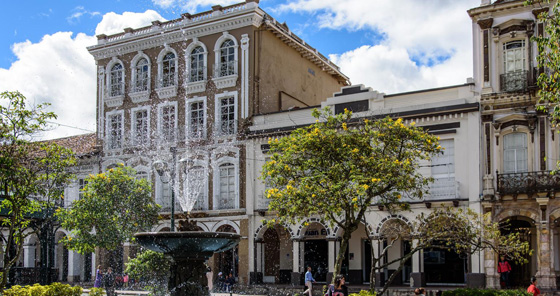
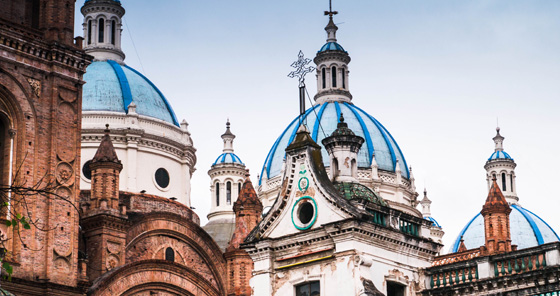
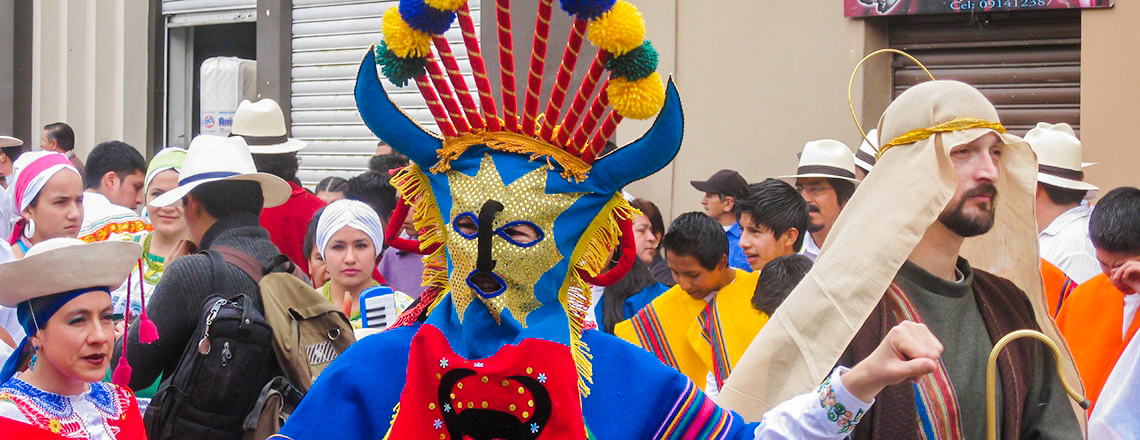
Cuenca is a city rich in culture and traditions, especially religious celebrations.
One of the most famous celebrations is the Jueves de Compadres (Godparents Thursday) which is celebrated the Thursday before carnival.
The celebration starts when families pick a godmother or godfather for their party and hand him or her a “guagua” (bread shaped like a baby girl) on a tray with flower petals. The compadre or comadre then promises to celebrate Carnival in the house of those who requested the “compadrazgo.”
Another fabulous and cultural place is the San Luis Seminar, an old mansion from the 19th century with big interior gardens that are now used as art galleries, coffee shops, and restaurants from where you can see the domes of the cathedral.
The Parque de la Libertad (Freedom Park) is another great place to visit. In the past, there was a detention center here but today it is a park with green areas and a viewpoint from which you can admire the city of Cuenca.
Pre-Incan and pre-Columbian museums are great options if you like ancient history. At the Cañari Identity Museum and the Aboriginal Culture Museum, you can appreciate antique pieces dating back thousands of years. These works tell the story of the Ecuadorian ancestral cultures before the arrival of the Incas and the later Spanish conquest.
For something a little different, you can also enjoy more modern museums such as the Museum of Modern Art or the Inter-American Center for Popular Arts and Crafts.
Also, there are a lot of very particular museums devoted to the traditional straw hat (Panama Hat) such as the Straw Toquilla Hat Museum, the Municipal Hat House Museum and the “Magic of the Hat” Homero Ortega Museum.
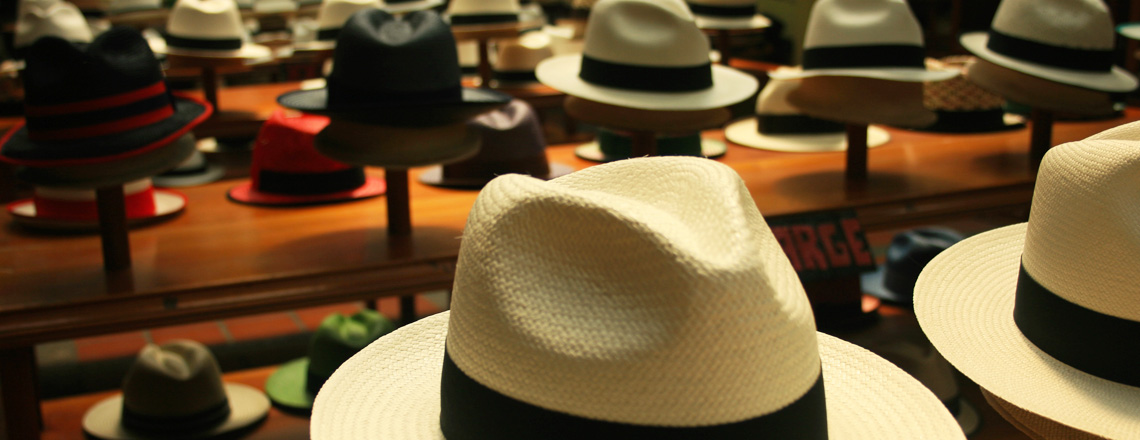

As the large, tourist-friendly Latin American city that it is, Cuenca is full of places to enjoy some exciting nightlife. If you want to dance salsa, you should go to “La Mesa Salsa and Son” or to Lola’s Bar.
In the city center you’ll also find “Indigo Restaurant,” a friendly place with good food and great parties on weekends.
“Blue Monday” is a good plan if you want to spend your time in a quiet place with Mexican drinks and food.
A longtime favorite with tourists is The Wunderbar, located in the middle of the stairs heading towards the Tomebamba River. The scene is relaxed and chill, making it an attractive option for a low-key night.
If you like jazz, the Jazz Society Coffee is a gem in the crown of Cuenca’s nightlife.
Cuenca is a relatively safe city in general. But, as in every metropolis, it’s essential to pay attention to your belongings. These tips will help you to stay safe:
Located in a colonial house in front of the Tomebamba River, it combines the best of the colonial style with its modern and global atmosphere, receiving people from all over the world in one place. It’s also very close to all the sites of interest in Cuenca.
It has a common kitchen, movie theater, a terrace for yoga practice, a very useful coworking space, a cafeteria and a restaurant with local and international food. Free WiFi and pet friendly.
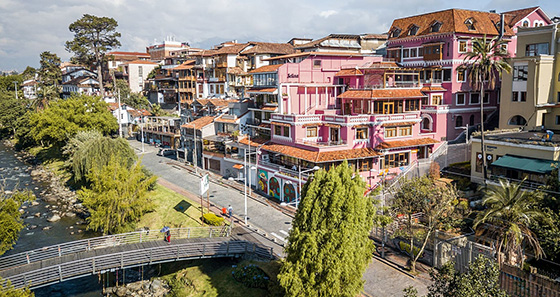
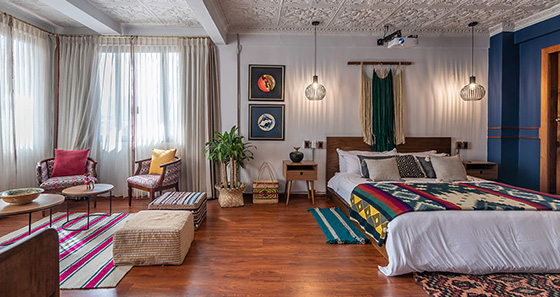
Cozy bed and breakfast located in a renovated house in the Historic Center of Cuenca. Very close to churches, restaurants and traditional markets. It includes free breakfast, WiFi, free coffees, teas and hot beverage; and an additional laundry service as well.
The location is beautiful, with a familiar touch and a very cozy atmosphere for travelers of all kinds.
